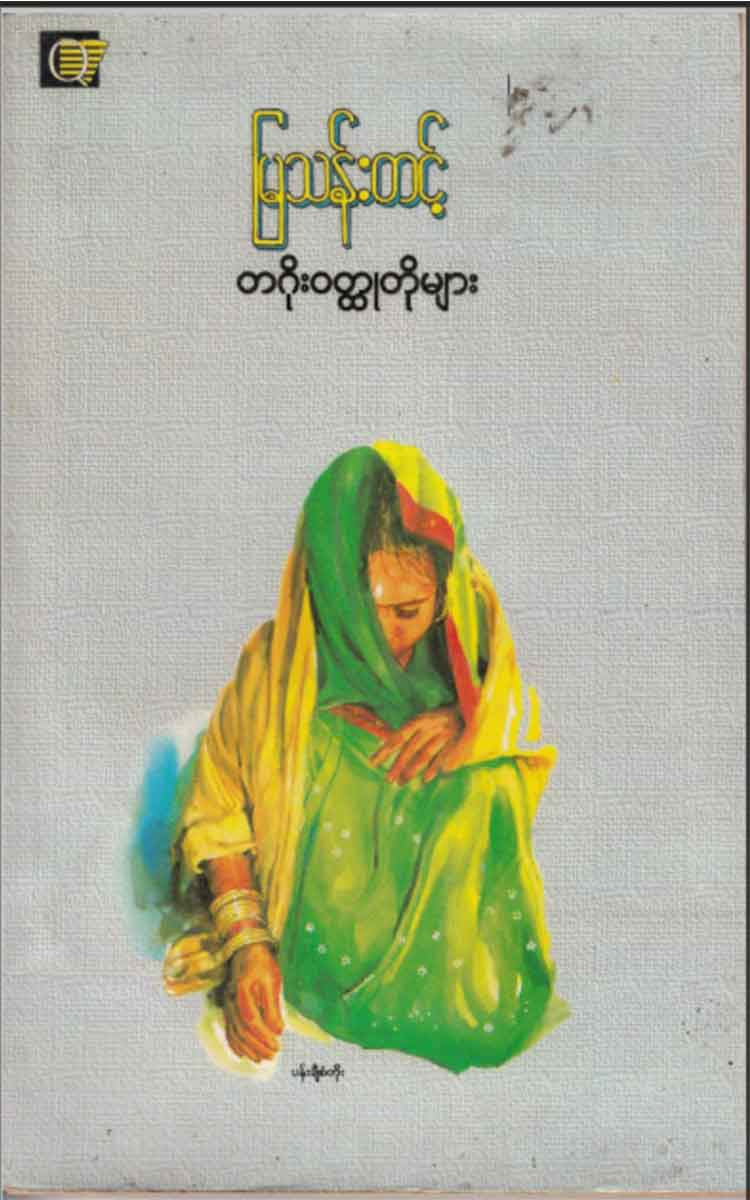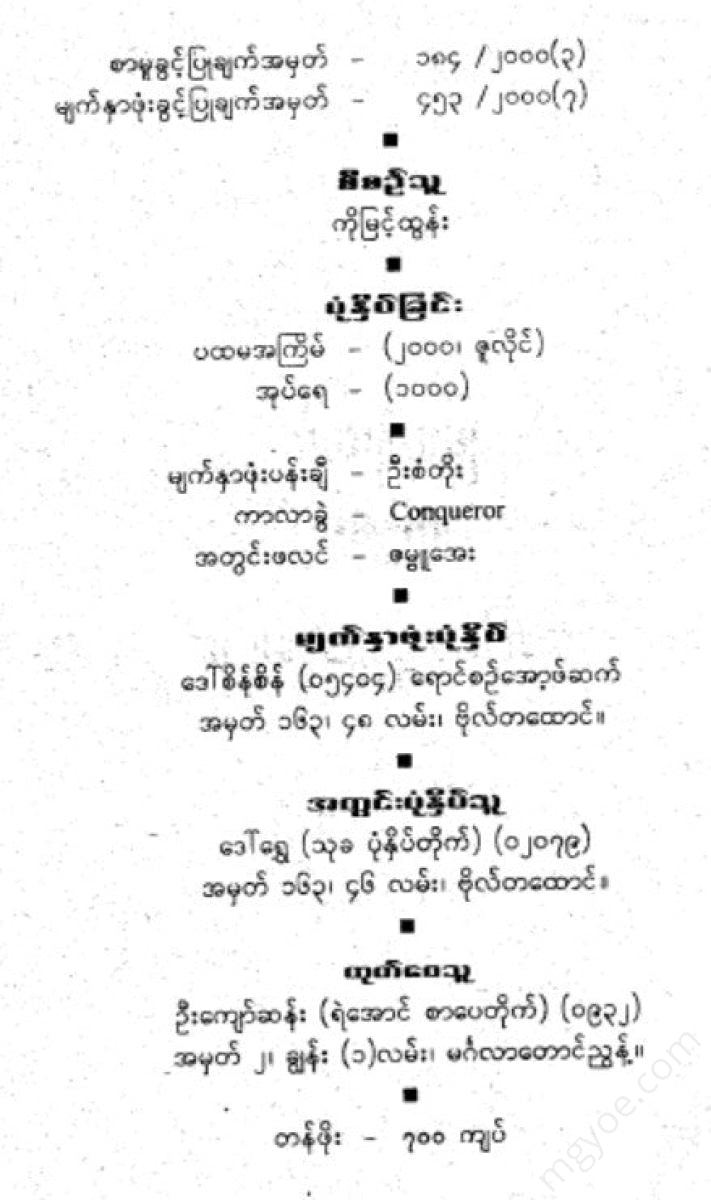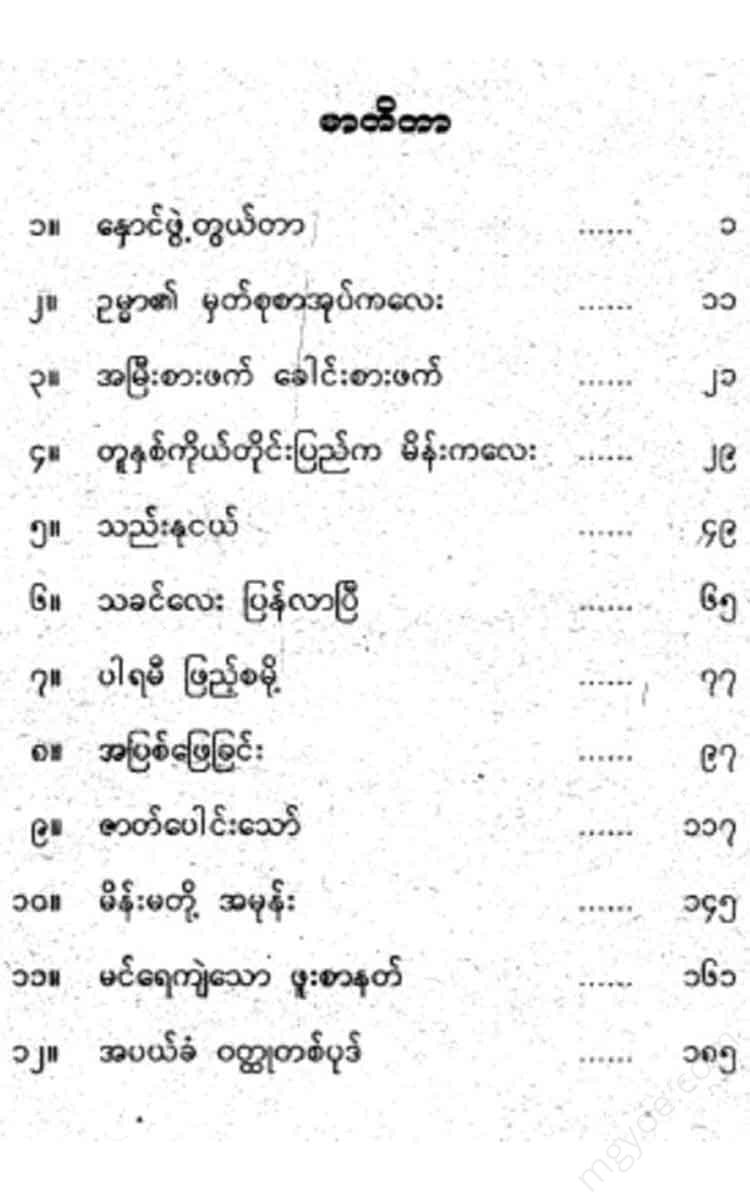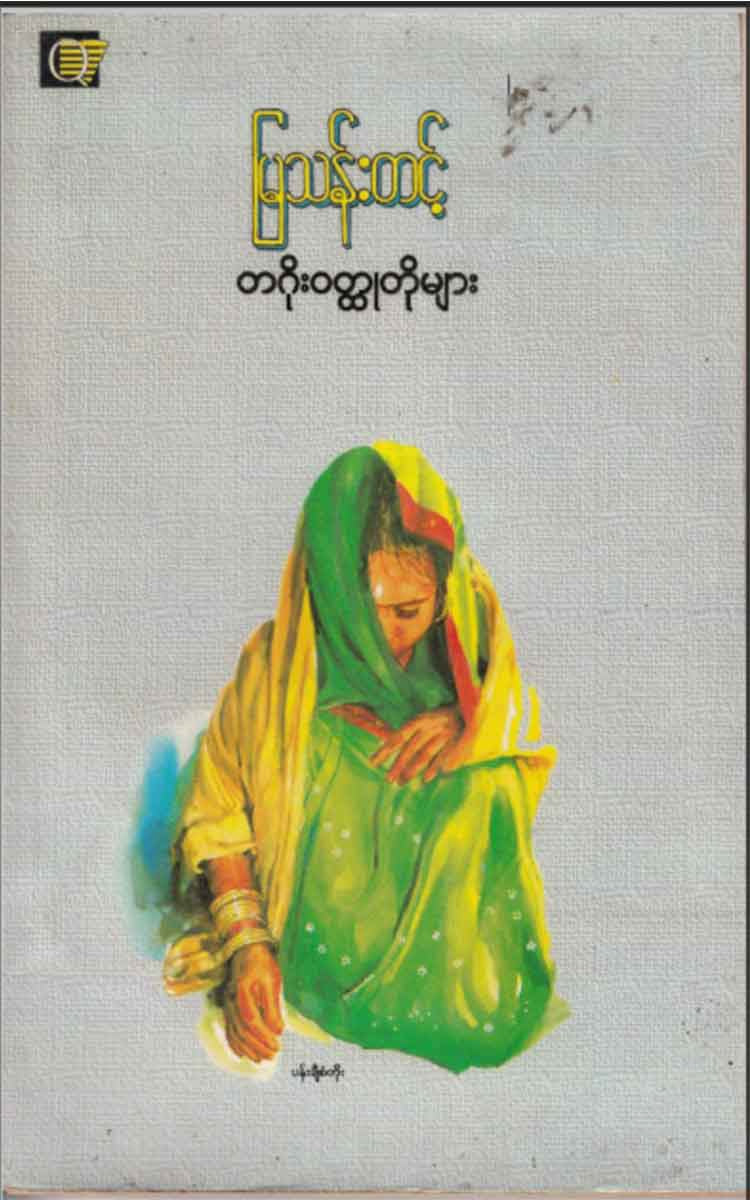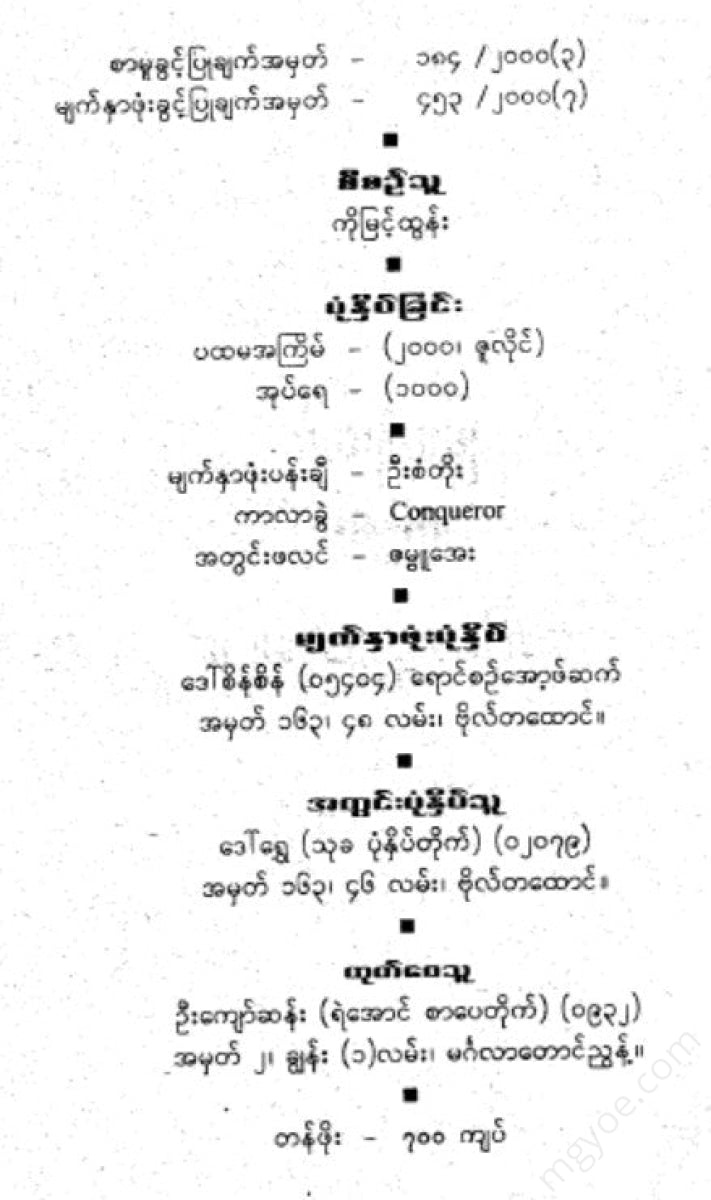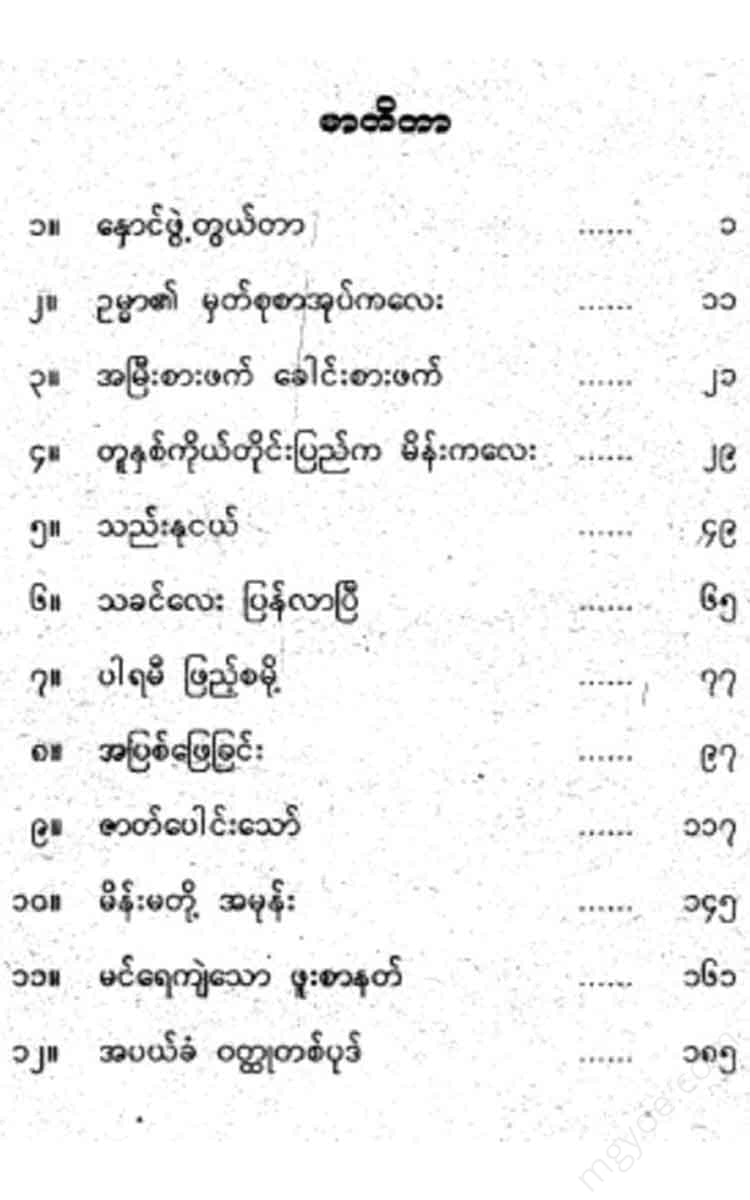Other Websites
Mya Than Tint - Tagore's Short Stories
Mya Than Tint - Tagore's Short Stories
Couldn't load pickup availability
Bonding
Ulapur village was the first village where the postmaster started his work. It was a small, unassuming village. However, there was an indigo factory in the village. Thanks to the efforts of the indigo factory owner, a European, a post office was established in the village.
The postmaster was from Calcutta. When he arrived in the village from the big city, the postmaster felt like a fish on land . The place where he had set up his post was a dark, small hut, with a forest and a pond with reeds growing nearby. The indigo factory manager and the workers were not very friendly. Moreover, they did not see any way of making friends for a big city man like him . It was not because Calcutta was not a place for him to meet. It was because he was not familiar with the hustle and bustle of the city, which he had never been to, that he felt lonely and alone.
There is not much work to do at his post office. The postmaster sometimes composes short poems. His poems are poems about the joys and sorrows of his childhood. The young crickets are just starting to emerge, the leaves on the trees are whispering in the wind, the clouds are floating in the sky, etc. If a giant from the story of A Thousand and One Nights were to uproot the trees and build tarred roads and skyscrapers all around the place, day and night, the life of the half-dead postmaster would immediately become fresh and lively.
The salary of a postmaster is very low. The postmaster cooks the rice himself. However, other household chores are done by an orphan girl from the village. She is given rice as a salary. The girl's name is Yadan and she is about 12 or 13 years old. It seems that there is no man who will take her. .
In the evening, when he was resting, smoke began to rise from the stables in the village. Crickets were chirping among them. From the distant village, he could hear the sound of drums, the sound of a flute, and the shrill sound of singing. Then he sat alone in the darkness. The poet felt as if he were about to faint when he heard the rustling of leaves. The postmaster lit a small, weak glass house in the corner of the room and called out, “Ratan-Ratan.” The girl, who was waiting outside the room, heard his call, but she did not come even after one call. She usually came after two calls.
“Here you go, what’s this?” “What are you doing?” “I’m lighting a fire.”
"Later, bring my old Tamaku."
After a while , Yadan arrived, his cheeks puffing out, his cheeks puffing out, his cheeks puffing out, his cheeks puffing out, his cheeks puffing out, his cheeks puffing out, his eyes
“Hey girl, do you remember your mother?” he asked.
This is the beginning of a long story. Yadan remembered some of his life stories. Some he couldn’t remember. He remembered his father a little. That was because his father loved him more than his mother did. His father would come home after a long day of hard work. Yadan remembered those evenings well. Yadan sat on the floor at the feet of the postmaster as he talked. He told me about his little brother. One day when it was raining heavily, the two of them sat near a small pond and played with fishing rods. Yadan remembered that incident more than any other. After they had talked like that, they didn’t eat much. The postmaster was too lazy to cook. Then Yadan cooked for him. Then they ate with the leftovers from the morning.
Sometimes the Postmaster would sit on a wooden stool in the corner of the room and talk about his home, his younger brother, his younger sister, and his mother. He seemed to miss his home very much, as he was in a different village. The Postmaster always remembered his family. But he did not tell these things to the officials at the indigo factory. It was not for nothing that he told the little girl from the forest who could not read or write. When he had to listen to the Postmaster's words, Ratan would call the Postmaster's family members, as he did, "Mother, Brother, Sister." He imagined their pictures in his mind.
On a sunny day, the wind was blowing gently. The grass was green in the sunlight. The leaves of the trees smelled sweet. The earth was warm and fragrant. A stubborn bird was singing a song in the distance, repeating a four-part melody . The postmaster was happy. The leaves, wet with rain, were shining and dancing in the air. The clouds were scattered like the remnants of a storm that had given up and collapsed.
The postmaster looked at the scene and thought, "It would be nice if I had a lover right now." The bird singing a song in the distance must be longing for a mate just like him. The leaves fluttering and shaking must be the same. No one would have thought that a small-paid postmaster in a remote village would have such fantastic thoughts.
The postmaster called out, "Yatan." Yatan was lying under a fig tree some distance away, eating an unripe fig. The master called out, and Yatan came to him.
"I thought I would teach you to read and write. What do you think, you?" he asked.
So that evening, the postmaster taught Yadan the dog's slang. After a few days, Yadan was even able to read and write.
The rainstorms of the rain god have not stopped, and the streams, ditches, and ponds are overflowing with water. Day and night, the only sounds are the sound of the rain and the croaking of frogs. The roads are underwater, so people have to go to the market by boat.
One morning, the rain began to fall early. The postmaster's apprentice, Yadan, stood at the door of the tent and waited for a long time. Since he could not hear the call from inside, Yadan picked up a basket of books and entered the tent. The postmaster was asleep on his bed. He was probably resting. So Yadan prepared to go back outside the tent. At that moment, a voice came from the postmaster.
"'Yatan,' he called out. Yatan turned back and asked, "Is Dada Babu asleep?"
" I'm fine. Check my forehead," he said in a soft voice.
His lonely and sad life. In the dark rainy season, the postmaster longed for someone's kindness. He remembered the gentle touch of a small hand on his forehead, which was warm and tender. The postmaster felt sad and remembered his mother and his little sister. But his wish was not in vain. Yadan was no longer a little girl. Yadan took his mother and ran to the doctor. He gave her medicine. He sat by the postmaster's bedside all night. He cooked food for her. " Is Dadababu okay? Are you well?" he often asked.
After several days, the emaciated postmaster began to recover and began to go out. He decided that he could no longer stay in the village. However, if he did not want to stay in the village, he would have to try to change jobs.
The postmaster wrote a letter to his superiors in Calcutta requesting that he be transferred to another location, citing health reasons as being unfit to live in the village.
Yadan, too, had no need of a nurse, so he lived outside the little hut that the post office had built for him, as was his custom. Sometimes, when I looked at the postmaster, he would see him lying on the bed or sitting cross-legged on a chair, deep in thought. Yadan waited for his call, and the postmaster waited impatiently for his transfer order. Yadan, waiting for his master to call, memorized the lessons he had given him. Sometimes, he would mispronounce the letters. One evening, his master called Yadan. Yadan rushed to his master and said, “ Dada Babu, are you calling me?” “Yes, I have to transfer tomorrow.” “ Where are you going, Dadababu?” “ I will return to my house.” “When will Dadababu return?” “ Never.”
Yadan didn't ask any more questions. He told me that the postmaster had applied for a transfer, and that his superiors had rejected his application, so he would be leaving work and returning home.
The two of them didn't speak for a long time, the little glass house in the corner of the room twinkling. Raindrops dripped from the old, old-fashioned rain gutter, falling drop by drop into the porcelain basin below.
Yadan slowly got up from his seat and went into the oven to bake some rotis. He was no longer as agile as before. He didn't know what thoughts were going through his mind. When the postmaster had finished eating, Yadan asked a question.
